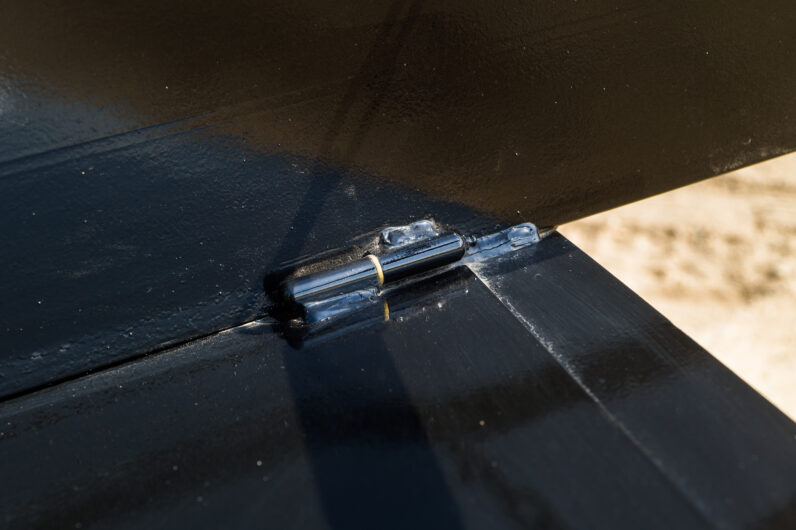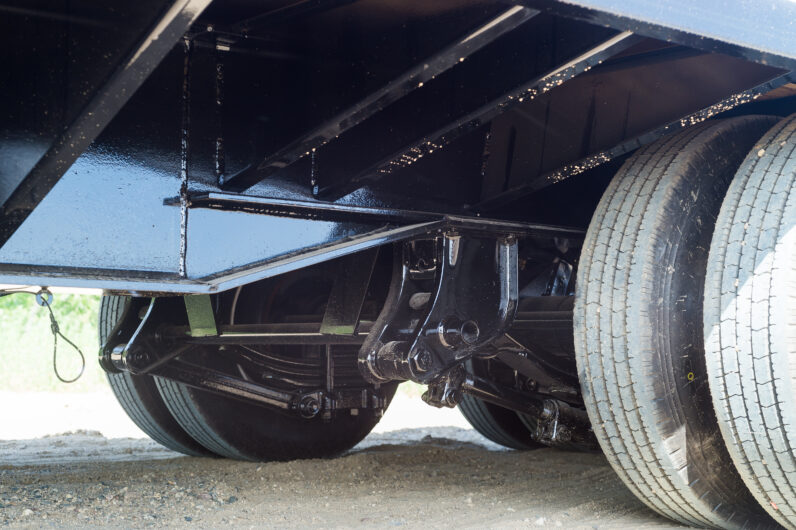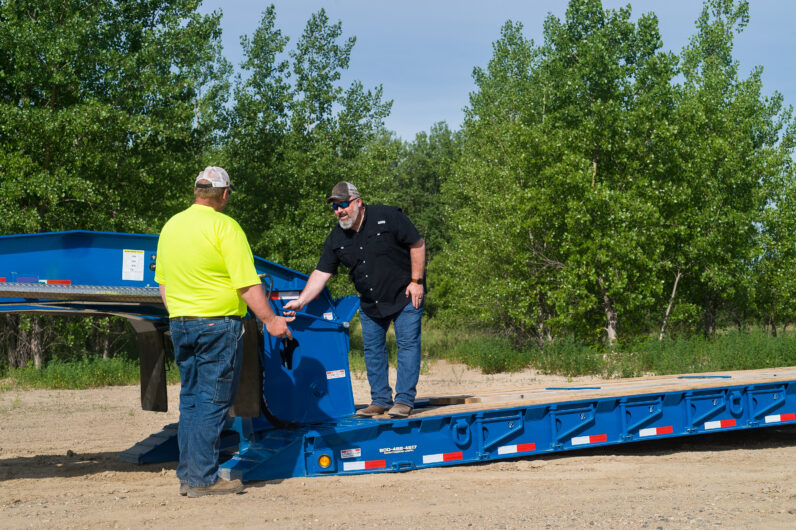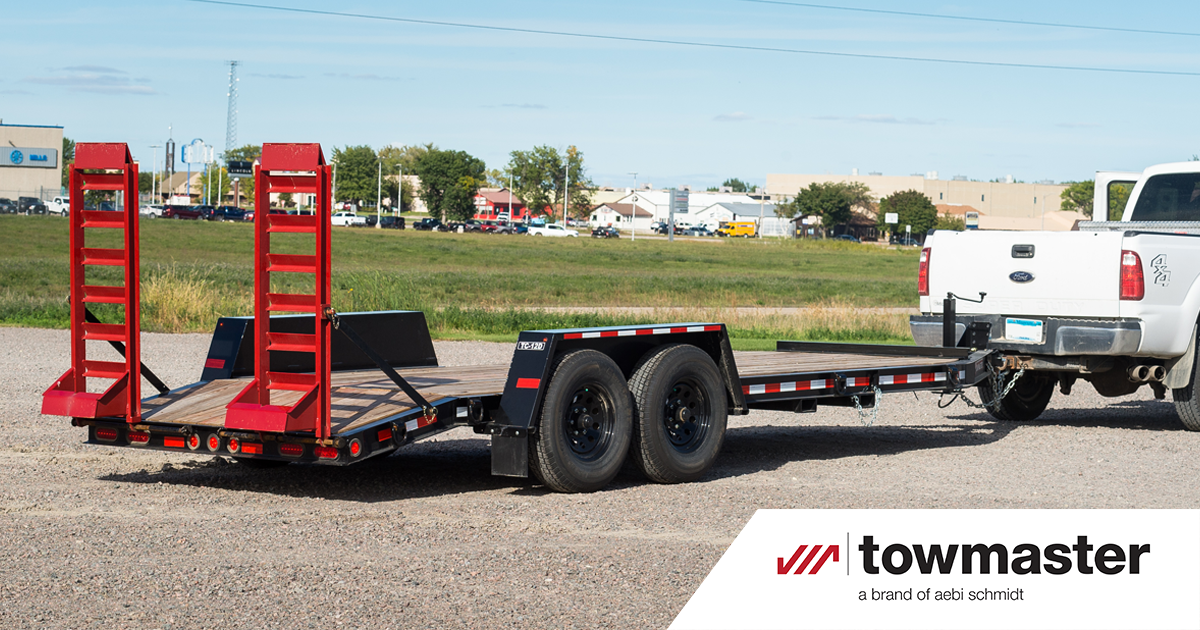Trailers are essential tools for hauling anything from brush to heavy equipment, but did you know trailers also need regular maintenance and care just like your car does? And if your trailer is not properly maintained, it can be dangerous for the driver, passengers, and anyone else on the road with you. Here’s a handy list of things that you can watch out for and even fix yourself. By keeping your trailer maintained, you can save yourself money by preventing costly repairs before they happen.
1. Keep it Clean
It’s a simple tip that we see time and time again, but for good reason! When dirt, dust, and grime get caked onto your trailer, it can damage the paint and finish. If that grime also makes its way into the more mechanical or delicate parts of your trailer, such as hinges and the suspension. To clean your trailer, household detergent and water is sufficient, and be wary of using a pressure washer! When used improperly, they do more harm than good.
2. Grease Moving Parts
Keeping moving parts, such as tool tray lid hinges and tilt deck pivot points, greased and in good working condition is essential. Every moving part creates friction and will lead to wear and tear, and then eventual breakdown of the part. It’s also important to use the right kind of lubrication for the part! Sealed components, such as wheel bearings, require grease applied under pressure from a grease gun. Make sure to use a lubricant specifically designed for wheel bearings or other automotive-related axle and bearing lubricant. Wheel bearings should be lubricated about once a year, or every 10,000-12,000 miles.
Lighter-duty lubrication tasks, like hydraulic dump door hinges, require a lighter, oilier lubricant, such as a spray application of graphic or white lithium. When you spray hinge points, make sure you move them back and forth to get the lubricant worked inside all the nooks and crannies of the hinge.

3. Seal and Inspect Wood
Sealing your wooden trailer deck will go a long way in making it last a long time by keeping it protected from rot, mold, and potential water damage. Choose a quality sealer meant for heavy-traffic wood and reseal once a year for maximum protection. Make sure to inspect and repair any damage before sealing.
4. Coupling
Inspect the trailer hitch coupling on every trip, before towing your cargo. Make sure it’s clean, in good condition, and has no slack, and that the coupler latch stays in place when in use and stays locked. Check that the receiver or ball mount is secured tightly to the hitch receiver tube with a hitch pin that is in good condition. Also check for any missing bolts, damage to the components, and signs of wear and tear. Don’t forget to attach the trailer chain safety hooks to the tow vehicle’s trailer hitch and connect the trailers wiring harness to the tow vehicle.
5. Suspension
The suspension is subjected to all sorts of grime, salt, dirt, gravel, tar, and water under the trailer. Inspect the rubber, metal, and bolts to look for rust, degradation, or damage. If you use your trailer off-road, it’s a good idea to spray the trailer down after each use before storing it. The salt and dirt from being hauled off-road or through the water could damage trailer parts otherwise.

6. Frame and Body Repairs
If you get any nicks or scratches in your paint or finish, get them fixed up as soon as possible. Leaving these exposed will invite rust to develop. Keep bolts and fasteners tight and replace worn ones as necessary. Are you hearing squeaking or rattling sounds when you’re towing something? It could be as simple as a bolt needing to be tightened, or it could be an indicator of a more serious problem. Make sure you’re doing a head to tail inspection of your trailer periodically to check for issues and get them fixed.
It’s also advisable to keep your trailer stored out of direct sunlight if possible. UV rays will further damage and fade paint and finishes.
7. Keep it Bright
Check your trailer’s bulbs periodically and replace them as needed. Burned out lights are not only dangerous for others on the road, but it’s also a chance to get pulled over or fined for having faulty lights. Watch where you hold the bulbs as you replace them, as the oily residue on your fingertips can lead to early burnout.
If the lights aren’t working and a bulb replacement hasn’t fixed it, the issue might lie in the wiring. Sometimes the fix is as easy as a dirty or loose connection that you can repair yourself, but if the problem turns out to be more complicated, it might be best to have the issue looked at and fixed by a professional.
8. Tires and Wheels
Tires are an extremely important part of your trailer – they’re the foundation between your load, the deck, and the road! Keep them in good condition by checking the tire pressure often, especially when the weather turns cold. Keep an eye on wear and tear and make sure to replace them when their normal life expectancy is up. It’s safer to change them out when needed instead of stretching them too thin and having a blowout happen, especially on the road while moving at high speeds. Check for cracking sidewalls and worn-down tread as well, and make sure your spare tire is in good condition.
Be mindful of rotating or swapping tires to extend life expectancy. Modern tires are designed to rotate in specific directions, so taking tires from the right side and moving them to the left could result in tires that are now installed backwards. They may need to be reversed on the rims and for that, you should always involve a professional trailer service facility.
Wheel lug nuts or bolts must be tightened and maintained at the proper torque levels to prevent loose wheels, broken studs, and possible dangerous separation of wheels from the axles, which can lead to an accident, personal injuries, or death. Check and re-torque wheel lug nuts after 10, 25 and 50 miles. A periodic check during regular service is recommended.
And don’t forget the wheels themselves! If there are spots of rust, damage, or severe wear and tear, consider replacing the wheels as well.
9. Keep on Rolling!
While these repairs are small and easy to do yourself, there are some repairs that should be left to the professionals, such as brake, suspension, coupling, and breakaway repairs. These can all be dangerous if done yourself without the proper knowledge and training, whether that’s danger to yourself or danger to others on the road if your trailer suddenly detaches.
And if you inspect your trailer every time you use it, even if no repairs or fixes are needed, you can save yourself money in the long run with costly repairs, as well as keeping everyone safe on the road, including yourself.

Your Trailer Partners
Towmaster Trailers partners with rental companies across the country to provide resilient, versatile trailers that offer long-term ROI, even through rigorous rental usage. If you want to know more about how to make equipment investments that will last for years, reach out to the Towmaster Trailers team today.

